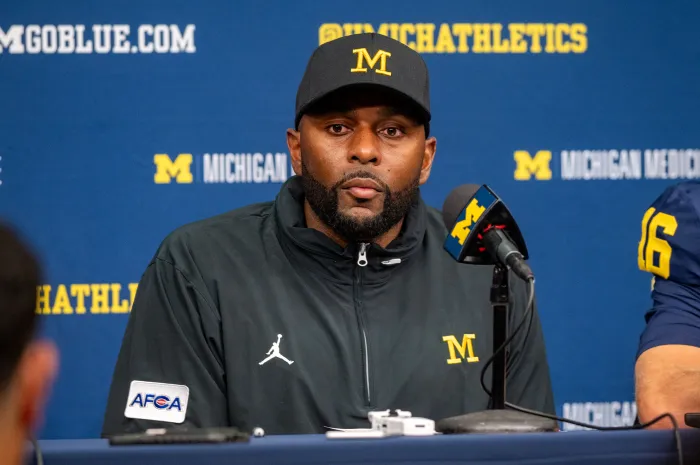JUST NOW: NCAA hits Jim Harbaugh with show cause, suspension not related to sign stealing.see more details..

Here are the full details on the NCAA’s recent ruling on Jim Harbaugh—strictly about recruiting violations during COVID, unrelated to the sign-stealing scandal.
—
🏛️ What the NCAA Penalized Harbaugh For
In August 2024, the NCAA’s Committee on Infractions imposed a four‑year show‑cause order on Jim Harbaugh, beginning August 7, 2024 and running through August 6, 2028. Along with that, he received a one‑season suspension applicable if he returns to college coaching before the order lapses .
These penalties stem from impermissible recruiting contact made with recruits and players during the NCAA’s COVID‑19 dead period in 2021—when in‑person interactions were banned. The infractions included:
Direct contact with recruits when prohibited
Inducements to recruits
Unethical conduct, including a failure to foster compliance and misrepresentation during the investigation
Because Harbaugh refused to cooperate fully and even provided false or misleading information, the NCAA designated his case as Level I‑Aggravated—the gravest category—triggering the toughest possible punishment .
—
What a Show‑Cause Order Means
A show‑cause order effectively blackballs a coach in college athletics. If a university opts to hire Harbaugh during this time, it must formally appear before the NCAA to justify why it should be allowed—and must suspend him for a full season. Even after that, he is barred from all recruiting, game prep, video work, meetings, and travel until the order expires .
In practical terms, very few schools will risk hiring a coach under such severe restrictions—thus effectively ending his college‑level opportunities until 2028 or later .
—
Separation from Sign‑Stealing Investigations
This punishment is entirely separate from Michigan’s sign‑stealing scandal involving former staffer Connor Stalions. That investigation led to a Big Ten suspension (Harbaugh missed three games) and ongoing inquiries into Michigan’s current coach, Sherrone Moore .
Importantly, the NCAA’s ruling on Harbaugh focused only on his actions during the recruiting dead period—not the sign‑stealing allegations. The sign‑stealing case is still open and unresolved, though Michigan has already taken steps like suspending Moore for two games .
—
Harbaugh and Michigan’s Reactions
His attorney, Tom Mars, dismissed the ruling as a “kangaroo court,” even likening it to a suspension for not signing a high‑school yearbook—and said it was irrelevant to Harbaugh’s current NFL role with the Los Angeles Chargers .
Michigan accepted broader penalties in April 2024: three years of probation, recruiting restrictions, and a fine. Harbaugh himself wasn’t part of that agreement, prompting separate consequences .
The NCAA noted Michigan’s violations for failing to monitor the program but focused the show‑cause entirely on Harbaugh’s personal conduct .
—
What It Means Looking Ahead
Harbaugh remains employed and unaffected in the NFL. His Charger contract continues.
College coaching with Harbaugh is unlikely until August 2028. Any move before that would require a mandatory suspension year.
Michigan’s program faces continued scrutiny due to the sign‑stealing investigation, but for now the two issues are distinct—recruiting vs. competitive fairness.
—
In summary, Jim Harbaugh’s four‑year show‑cause and one‑season suspension is strictly tied to 2021 COVID-era recruiting violations, classified as aggravated due to his non-cooperation and misleading responses. Although severe, the ruling doesn’t address the sign‑stealing allegations, which remain pending. Michigan’s separate compliance measures and fines reflect a wider institutional response—but Harbaugh’s personal sanction stands alone, significantly limiting his return to college coaching until 2028 at the earliest.
—
